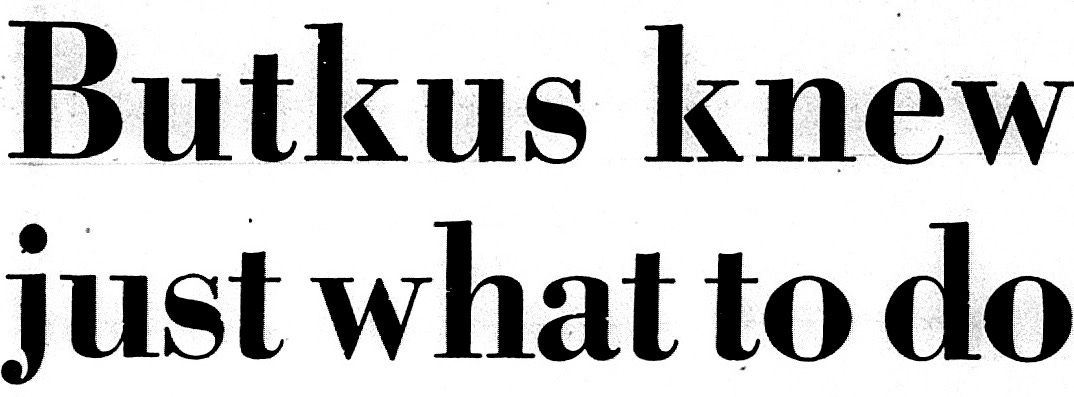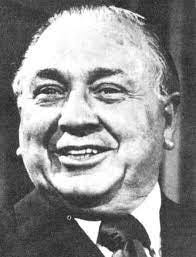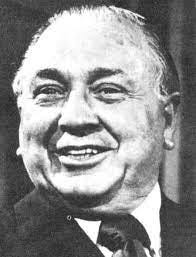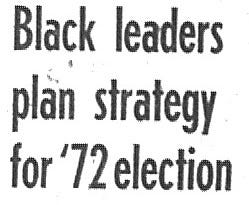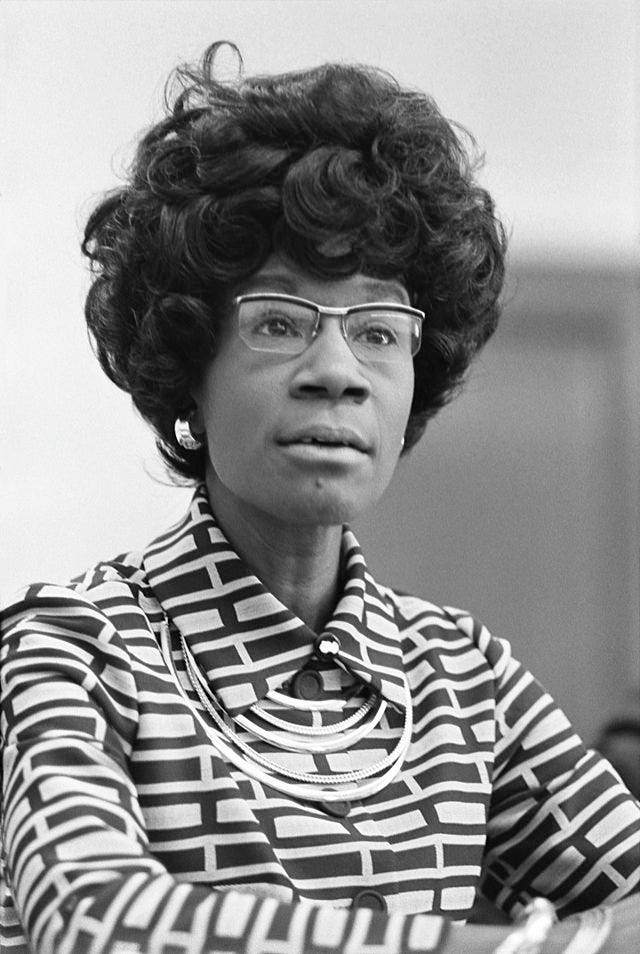THIS CRAZY DAY IN 1972: Dick Butkus, son of Roseland, saves the day!
Weekly Compilation: Nov. 15-21, 1971
To access all site contents, click HERE.
Why do we run this separate item peeking into newspapers from 1972? Because 1972 was part of the ancient times when everybody read a paper. Everybody, everybody, everybody. Even kids. So Steve Bertolucci, the 10-year-old hero of the novel serialized at this Substack, read the paper too—sometimes just to have something to do. These are some of the stories he read. If you’d like, keep up with the 1972 papers every day on Twitter, @RoselandChi1972.
November 15, 1971
Chicago Sun-Times: lt’s miracle Bears again 16-1 Butkus conversion catch nips Skins
By Jack Griffin
Chicago Daily Defender: Bears win, 16-15
By Lee D. Jenkins
Chicago Daily News: Butkus knew just what to do
By Ray Sons
The sports writers were swooning. The News’ Ray Sons: “What were the odds against a winning pass from Douglass to DICK BUTKUS? ? ? ?” Extra question marks—and spaces in between them—by the News’ typesetters.
And let's add: Dick Butkus, proud son of Roseland!
The Sun-Times’ Griffin: “And it was a bruised Douglass, passing 35 yards to a bleeding Dick Butkus, who hung the last point on the board, the one that was the difference between triumph and a sister-kissing tie.”
Griffin’s rundown: “The Bears had entered the final quarter down 15-6, then had rung up a field goal and Cyril Pinder…had gone on a 40-yard touchdown trip on a sucker play up the middle…But it was still only 15-15, and Butkus had growled in the huddle, ‘We got to have this point.’”
Douglass caught a kick from Gene Hamlin, but “he also attracted a large group of hostile Redskins”. They chased Douglass all over. “I was looking for somebody,” says Douglass, “and finally I saw Butkus in the end zone. And people have been saying I can’t find receivers downfield.”
Anyone of tender years reading this about five minutes after I posted will likely be stunned to read the former name of the Washington D.C. football team, but there you are. Remember we told you to fasten your seatbelt for 1972.
Butkus’ game save was all the more heroic because, according to Griffin, “someone had stuck an elbow in his left eye and he was bleeding so badly he could barely see.” Butkus was eligible to receive, says Sons, “because he lines up at left end, slightly back from the line of scrimmage, as a blocker on place kicks.”
The Defender’s Lee Jenkins goes with a different lede: “It’s probably the shame of professional football that the incomparable Bears can only get 55,049 people into Soldier Field for their unbelievable National Football League sets,” he writes. “Hardly ever in the NFL annals has a defensive unit been called upon as often and under such perilous conditions as were the Bears’ defenders yesterday.”
The Bears finish this week 6-3 for the season, second place “in the tough Central Division” as Jenkins puts it. Ray Sons writes, “The Bears remain masters of their destiny with five weeks left in the National Football League season. They can take the NFC Central Division title—merely by winning their last five games.”
Griffin’s close: “When it was long over, George Seals, the philosopher, looked up and said, ‘It’s so far to go from here, I don’t even want to think about it.”
Check out DICK BUTKUS’ “Immaculate Extra Point on YouTube here.
November 15, 1971
Daily News: Daley bloc gags foes at city budget hearing
The first City Council hearing on the real Mayor Daley’s 1972 budget proposal is the first chance for Finance Committee chair Ald. Tom Keane to silence the tiny Council opposition. And of course he takes it.
The News’ Jay McMullen, future husband of future Mayor Jane Byrne, reports that Keane questioned Daley’s budget director Edward Bedore on the $895,904,208 proposal. Then Keane had Daley stalwart Ald. Wigoda go over the exact same stuff—then Keane handed it to 11th ward Ald. Michael Bilandic.
Bilandic, of course, represents Daley’s home ward and is such a Daley stalwart that the Council will vote him to succeed the real Mayor Daley when he dies in office in 1976. A few years later McMullen’s future wife will grab the Democratic nomination from Bilandic in 1979. Just kind of fun to think about the bizarre scenarios to come with these people.
Keane ignored attempts by independents Ald. John Hoellen (47th) and Ald Jack Sperling (50th) to speak. “Keane, who wrote the rules under which the City Council operates,” notes McMullen, “said he would ignore such attempts to get the floor.” Keane claims the independent aldermen just want to talk “for the benefit of the television cameramen at the hearing.” That's a classic excuse to shut up independent aldermen, often used by the real Mayor Daley himself.
In other news, the 1972 budget funds voting machines for all polling stations run by the Chicago Board of Election Commissioners.
November 16, 1971
Chicago Daily News: End zone miracle
The Daily News has probably never written an editorial before about a single play in a football game. But they do it today for Dick Butkus, proud son of Roseland!
Remember, Butkus and QB Bobby Douglass were Sunday’s heroes in the 16-15 win over Washington. The Bears tied it up in the final minutes and lined up for the extra point. But Gene Hamlin “blooped one” as the Sun-Times put it, and the ball sailed over Bobby Douglass, who was kneeling to hold the ball for kicker Mac Percival.
“I didn’t see the snap,” Percival said afterward. “I was looking down and all of a sudden I saw Bobby jump up and start chasing the ball.” The Redskins chased Douglass all over the field. Butkus realized he was eligible to receive because he’d lined up as a halfback. He ran to the end zone, and—
“Douglass threw to Dick, who might have swallowed any Redskin rash enough to try to keep him scoring the first extra point of his career,” wrote the Sun-Times’ Jack Griffin yesterday. Today, the Daily News celebrates on the editorial page:
“Any resemblance between Dick Butkus and Lady Luck, or Horatius at the Bridge, or even the Dutch boy at the dike, is pretty remote,” writes the News. But with “the final minutes ticking away, and a bad pass from center stripping the Bears of their last chance to kick the point-after-touchdown—there stood Guess Who in the end zone to nail Bobby Douglass’ spur-of-the-moment pass and win it.”
The”cherry on the sundae,” the News points out, is that Butkus is normally not eligible to receive—but he was this time because he’d lined up as a halfback for the conversion play. “And Butkus—along with Douglass—had only a split second to figure that out.”
Afterward, Redskins Coach George Allen couldn’t believe his luck: “Can you imagine losing a ballgame on the bad snap from center?” he groaned.
“We’d say the Bears won the ball game on one heck of a play by two superb instinctive footballers,” says the News.
November 16, 1971
Chicago Daily News: Beeline
Beeline is the News’ all-purpose help column--answering questions, getting consumer refunds, you name it. Here’s a reader request Beeline would never honor in 2021:
Mrs. E.R. of Chicago writes that for her husband’s upcoming 50th birthday, she’d like to get him maps of the runway systems at O’Hare and Midway. “My husband enjoys listening to the exchanges between the pilots and control towers on his very high-frequency radio band, and the maps would help him follow the activity,” she explains.
Does Beeline tell her she’s crazy, or report Mr. E.R. to the FBI for obvious terrorist activity? No.
“Your husband isn’t the only one who likes to follow the takeoff and landing activity at the airports,” buzzes the ever-helpful Beeline, “and to help them, the city Department of Aviation in City Hall makes such maps available to anyone who wishes them.”
Beeline has already sent Mrs. E.R. the runway maps, because Beeline agrees, listening without the maps is “like watching a baseball game without a scorecard.” Beeline even helpfully tells us what frequency to catch the action on—118-130 megacycles—and explains a sample exchange:
With a map, “when you hear, say, ‘United 451 calling O’Hare….We’re at the outer marker,’ and the tower answers, ‘OK, United 451, you’re clear to land on three-two right,’ you will understand that this means the right runway of two parallel runways that run from southeast to northwest.”
Also, the “outer marker” is six miles from the field.
November 16, 1971
Chicago Daily Defender: Rally denounces welfare slashes
By Robert McClory
The Defender’s Bob McClory reports that a planned massive rally at the Dirksen Federal Building protesting Gov. Ogilvie’s slashed funding for general assistance welfare was “disappointingly small.”
“None of the three announced national leaders showed up, and the crowd” was only about 400 people. The three leaders included Rev. Ralph Abernathy, national SCLC president, who “apologized…but stated his many duties made it impossible for him to attend.” U.S. Rep. Julian Bond also didn’t show up, or Rev. Charles Koen, Cairo United Front director.
McClory estimates about half the crowd “were members of the Black P Stone Nation,” who marched prior to the rally calling for the release of leader Jeff Fort from prison. “In fact, the rally was more nearly a ‘Free Jeff Fort’ demonstration than anything else.”
For background on reporter Robert McClory, see the October 28th This Crazy Post “Welfare grinding to a halt” here.
November 17, 1971
Chicago Daily News: Sayers is hospitalized
By Jack Schnedler
Tribune: Sayers Hospitalized for ‘Skin Boil’ on Left Knee
By Don Pierson
When Bears fans read about legendary Gale Sayers this year, they hold their breath.
Sayers came back strong from a right knee injury and surgery in ’68, but this year’s recovery from a ’70 left knee injury and 2 surgeries is a different story. Sayers is at Illinois Masonic for “rest and observation” due to a “skin boil” which “complicated the injury to his left knee.”
That’s a new left knee injury—it was “strained last week in practice”. This is the man who, in his rookie year, scored 22 touchdowns—a league record—six of them in a single game against the 49ers, tying a previous record.
But Sayers hasn’t played since Oct. 17 in San Francisco, and word is he’s suffered “ankle and foot injuries” from the artificial grass in both the Bears’ new home at Soldier Field, and at Candlestick Park.
“He has carried the ball 13 times this year for a total of 38 yards,” writes the News’ Schnedler, and you can hear him wince as he types. The Trib’s Don Pierson is far more blunt: “Sayers never completely recovered,” he writes.
Pierson repeats the 13 carries for 38 yards statistic—but adds the information that makes it somehow worse: Sayers’ yardage is so low because he’s only managed to play briefly in two games the entire season.
Then, Sayers was “placed on the ‘move’ list,” Pierson writes.“He has been on the inactive list for four games.” Gale Sayers is out for this coming Sunday against the Lions. Coach Jim Dooley warns Detroit might be ready to heat up—which would follow their pattern last year.
Plus Dick Gordon may not play. Gordon strained his left knee against Washington last Sunday. “I can walk,” he said Wednesday. “Yesterday I couldn’t. I don’t know.” Dooley wants Gordon to jog on Thursday “to see how he does.”
“Gordon, whose pass-catching talents draw double coverage from most teams,” didn’t practice Wednesday, writes Schnedler, adding, “He was a vision of sartorial elegance in red velvet cape, purple cap and black walking cane to support his sprained left knee.”
As for the Lions this Sunday, “We expect them to go full blitz,” says Dooley. “If Dick Gordon is out of action they can take a chance on coming in stronger."
BTW, the afternoon News carried this story Wednesday, but the morning Trib couldn’t print it until Thursday, so I guess I’m cheating a little by putting the two together for a November 17 post.
November 18, 1971
Daily News: Daley awaits visits by Lindsay, Yorty
By Henry Hanson
“Mayor Richard J. Daley basked in the role of Democratic Party kingmaker Thursday as he awaited visits from Mayors John V. Lindsay of New York and Sam Yorty of Los Angeles.” Yes, Chicago mattered nationally before Senator and later President Obama!
“Both men are courting Daley, the nation’s most powerful big-city Democrat, as the presidential election draws nearer. And the flow of chauffeured limousines outside City Hall is expected to escalate in the political months ahead.”
“Daley assigned Fire Commissioner Robert Quinn to pick up Yorty, whose mother was born in Ireland. Quinn and Daley are both Irish.”
November 19, 1971
Chicago Daily News: Bakalis will order total desegregation
By Dennis Sodomka
On Monday, Illinois Superintendent of Public Instruction Michael Bakalis will issue an order that all Illinois public schools must totally integrate or lose state and federal funding. But he’ll give districts flexibility and time to draw up plans.
Earlier, a Bakalis spokesman had said schools needed to integrate in seven months. Now, Bakalis says “we recognize there are school districts where desegregation just can’t happen in 1971 and 1972.”
November 19, 1971
Chicago Daily News: New Michigan Av. plaza!
By Dennis Byrne
People had never heard anything so crazy before: Chicago was going to get what the developers were calling “a vertical mall” on Michigan Avenue. Can you guess the name?
That’s right, Water Tower Plaza!
That was the original name, it turns out. “Marshall Field & Co. and Lord & Taylor of New York will have stores in the complex,” wrote long-time Chicago journalist and columnist Dennis Byrne, then a News reporter.
The model did look exactly like today’s Water Tower Place—minus the Dr. Seuss thing that has replaced Macy’s that bought Marshall Field’s, and American Girl instead of Lord & Taylor.
November 19, 1971
Daily News: Knew I’d be back: Leo ‘Still won’t be nice guy’
By George Vass
Tribune: Wrigley Sticks with Leo
By George Langford and Richard Dozer
Cubs owner Philip K. Wrigley finally sat down with Cubs manager Leo Durocher and made it official: Leo will return for the 1972 season. Durocher said he had no doubts he’d be staying. Which is odd since Cubs VP John Holland changed up the Cub coaching staff last week without telling Leo.
“I was never told I wasn’t (manager), and as far as I was concerned I was the manager until somebody informed me that I wasn’t,” Leo said at a Wrigley Field press conference. But the Trib leads with the fact that there were “known movements within the organization to oust” Durocher and he’s only got a 1-year contract. He got a 3-year contract in ’66, then a 2-year, and this is his second 1-yr contract.
This was Leo’s first meeting with owner P.K. Wrigley since the end of the season on Sept. 30. The Trib says there was ‘open rebellion among the players against Durocher’s policies”. And the last three seasons have been “disappointing.” Talk about understatement. Still, Leo’s hiring in 1966 “coincided with the beginning of one of the most financially…successful eras in the club’s history.”
“It is believed that the rehiring of Durocher almost necessitates the trading of several players who were at odds…with the controversial manager, particularly Pitcher Ken Holtzman, author of two no-hitters, and Third Base Star Ron Santo,” says the Trib.
The Trib reminds us of the August 23 Durocher-player clubhouse meeting when Durocher “reportedly…invited the players to ‘forget I’m the manager, just pretend I’m another player and air your gripes.’” They did, and predictably bad feelings ensued.
The News’ Vass says P.K. Wrigley “supposedly was to exact certain conditions for Durocher’s retention after six years of managing the Cubs. Among these conditions was the requirement that Durocher improve his relations with the press.” The Trib concurs. But Durocher gives no hint at the press conference that he’s heard about that.
November 19, 1971
Chicago Tribune: Some fans cheering, others jeering
By Bob Logan
News that Philip K. Wrigley has hired Leo Durocher to return for a 7th season to manage the Cubs has everybody talking. A sampling:
“I wanted Ernie Banks to be manager…Every time Durocher gets in trouble, he brings in Regan. Next year, it’ll be the same thing.” –James Johnson, Chicago
“He should have won the pennant back in 1969. I was against people who said it wasn’t Leo’s fault, but I was wrong,” –Pat Jacob, Chicago
“I wouldn’t even talk to a man unless he bought me a drink first. I don’t drink while I’m working, but I’ll take this [pocketing a dollar bill] and have one later. Now, since you asked about Durocher, I’ll tell you. He’s outlived his usefulness—that’s it.” –Bartender Bruce Cash, Chicago
November 20, 1971
Sun-Times: Black leaders plan strategy for ’72 election
By William Chapman
Sun-Times: Shirley angered by slight
(AP)
The U.S. House Black Caucus organized a conference to discuss strategy for increasing Black political power in the ’72 presidential election and did not invite U.S. Rep. Shirley Chisolm (D-NY), who is Black, even though she is running for president.
Chisholm found a chance to speak anyway at the end of a panel discussion called “The development of black political power in the ‘70s”—which included four men and one woman, Texas state Sen. Barbara Jordan.
“For God’s sake, I don’t understand how you can bring black elected officials from around this country…” Chisholm began, then “paused, too outraged to finish her sentence. She glared at the mostly male audience, then started again:”
“The highest elected black woman official in the country today,” she went on. “You better wake up! Every time we have a conference or meeting or what have you, something happens. For whatever reason, I am not a part of either panel…You’re going to hear from Shirley Chisholm in Miami next July!”
Miami will host the 1972 Democratic National Convention, and Chisholm will be there. Who’s still got their Shirley Chisholm button?
November 21, 1971
Chicago Tribune: Draft Kerner Indictment
Report U.S. Preparing Racing Charges
Today really begins the long tangled story of former Illinois Gov. Otto Kerner and some shady racetrack dealings. We’ll follow this story as it progresses in This Crazy Day. Younger readers, enjoy! Older readers, no spoiler alerts!
Otto Kerner resigned office in 1968 when he was appointed a federal judge by President Lyndon Johnson. The Trib reveals today that President Nixon’s Justice Dept., led by Attorney General John Mitchell, is about to issue an indictment for Kerner and four others over the shady racetrack dealings.
The others indicted are the former state revenue director; the former state director of financial institutes; and the former Illinois Racing Board chairman, plus his personal secretary. The officials were all appointed by Gov. Kerner. An interesting group of officials!
The coming indictment follows a two-year federal grand jury investigation. The charge, basically, is that they schemed together to promote the creation of two new racing entities, Washington Park Trotters and Chicago Harness Racing, and get some of the newly issued stock at rock bottom prices for themselves and certain members of the Illinois legislature.
Which is where former Illinois Secretary of State Paul Powell and his shoebox stuffed with much of $750,000 in small bills comes in. I guess Powell’s not indicted because he’s dead, which is why they found all that money hidden in his closet. When his estate was settled, they found his share of the shady racetrack stock.
The indictment will say that 49% of the stock for one of the new racing entities was earmarked for Paul Powell and some other legislators. And this is where we intersect with Mike Royko.
On November 9, Mike wrote one of his best ever columns about Illinois House Rep. Clyde Choate, a genuine World War II hero who unfortunately went into politics as a protégé of Paul Powell. It recently became known that Choate has some of that shady racing stock. See here for the full Nov. 9 post.
On Nov. 16, Mike Royko wrote a column about the fact that Rep. Clyde Choate has made it known he would like to punch Mike Royko in the nose.
On Nov. 18, Mike wrote about Rep. William (Bingo Bill) Murphy, who was so mad about Mike’s Nov. 9 column about his friend Rep. Clyde Choate that he wrote a long resolution for the legislature condemning Mike Royko.
Today the Trib lists Bingo Bill Murphy as one of the other legislators who allegedly got some of that shady racetrack stock.
Do you dig spending some time in 1972? If you came to THIS CRAZY DAY IN 1972 from social media, you may not know it’s part of the book being serialized here, one chapter per month: “Roseland, Chicago: 1972.” It’s the story of Steve Bertolucci, 10-year-old Roselander in 1972, and what becomes of him. Check it out here.




